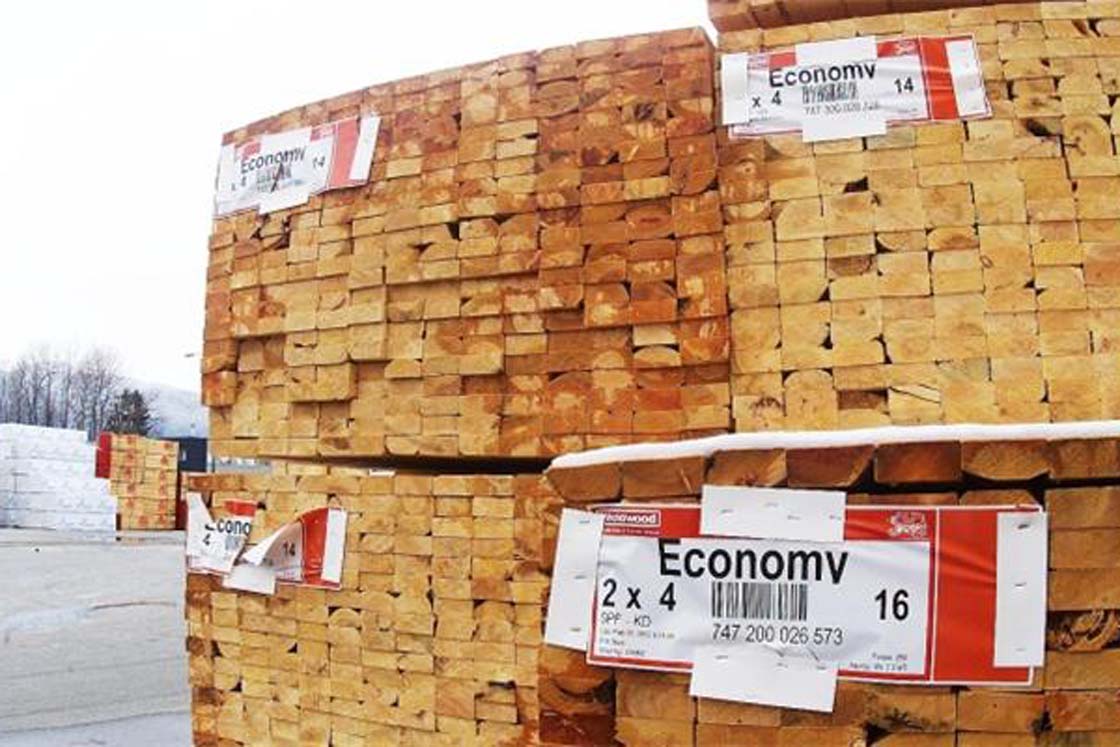VANCOUVER – New Democrat Leader Adrian Dix plans to reduce British Columbia’s log exports, operating on the campaign slogan “B.C. logs for B.C. jobs.”

But the promise to reduce log exports has been made — and broken — before.
And while many agree a domestic “value-added” forestry economy is preferred, log exports do not necessarily equate to fewer jobs and may actually be subsidizing the market for domestic products, say an industry representative and observers.
“A record six million cubic metres of logs were exported in 2012 when they could have created jobs in B.C.,” Dix said in a news release Wednesday.
But to one industry representative whose association includes more than a dozen logging companies and mills on B.C.’s coast, those log exports created jobs.
Rick Jeffery, president and CEO of Coast Forest Products Association, said every thousand cubic metres of logs exported leads to a job in the industry for a logger, truck driver or longshoreman.
“If we thought that the export of logs was the export of jobs and that it was bad for the domestic industry, we would be against log exports,” Jeffery said.
“The dirty little story that no one wants to talk about is that log exports help profitability, which helps reinvestment in mills.
“You only have to look at my membership to see that they’ve been reinvesting in their mills in the last little while. Their ability to do that has to do with the fact that they are making some profit exporting some logs.”
To Jeffery the argument is strictly economic, noting his members want to cut and process logs in their mills.
“If we get a better margin putting a log through a mill than selling to some Chinese guy, that’s what we want to do.”
So-called “raw logs” are just one forest product exported from B.C., he added, calling the term inflammatory and meaningless.
David Cohen, a forestry professor at the University of British Columbia, said logs differ from lumber and other products.
“They cut down the tree, they take off the branches, they cut off the top and they either cut it to a specific size or export it the way it is,” said Cohen. “If it’s cut into squares, it’s not a log. It has to be round and hairy.”
Log exports make up a small portion of the total value of B.C.’s forest product exports. Of the $10 billion earned from wood-product exports last year, less than six per cent was from logs, according to government statistics.
But on Vancouver Island and along the west coast, where timber is hardest and most costly to access, foreign markets help to ensure the timber remains economical, said Cohen.
B.C. forest policy requires loggers to offer logs locally before marketing them abroad to places like China and Japan — countries that pay premium prices for unprocessed B.C. trees.
“If a local mill was willing to pay what China or Japan were willing to pay, they (the logs) wouldn’t get exported,” Cohen said.
“There’s a real problem on the coast,” he added. “There are certain areas that if you couldn’t export the logs, you wouldn’t log it at all.”
When foresters determine the feasibility of logging a stand of trees, they expect to export some and sell some locally, he said.
Jeffery — who noted the drawn out, redundant log-export debate is making him “go insane” — said for every exported log, two logs end up in domestic mills.
Dix spoke about the NDP’s five-point forestry plan Wednesday in Prince George, a city that’s been at the centre of the industry for decades.
Dix said he wouldn’t ban log exports but stressed the importance of delivering logs to local mills before sending them abroad.
“There are many regions of our province where our manufacturing capacity is not there right now, and we have to be realistic,” he said.
New Democrat forestry critic Norm Macdonald said the province can export some logs as a way of getting other wood to market.
“But it has to be balanced,” he said. “If we give up all of our manufacturing and concede that we cannot be competitive in forest products, that is a huge concession that I don’t think people are willing to make,” he said.
Macdonald said his party plans to reinstate the Timber Export and Advisory Committee, which makes recommendations on prices of export wood.
Macdonald also said he does not agree with a free-market approach to determining where logs go and would work with the industry to move towards fewer log exports.
Besides, Macdonald said the international forestry market is not a free market because of Chinese policies.
Cohen and Jeffery agreed few in the industry would complain about a thriving value-added, forest-products market in B.C., but economic forces may be working against it.
“Everybody would like us to move up the value chain,” said Cohen. “It’s a mantra I’ve heard for 25 years here, the problem is you have to do it and make a dollar at it.”
“We are never going to see it on a large scale because our wage rates are too high,” he said.
Jeffery is more optimistic, though.
“The best way to reduce log exports is to build markets and have a competitive manufacturing industry,” he said. “If we are competitive then those logs will stay here.”



Comments